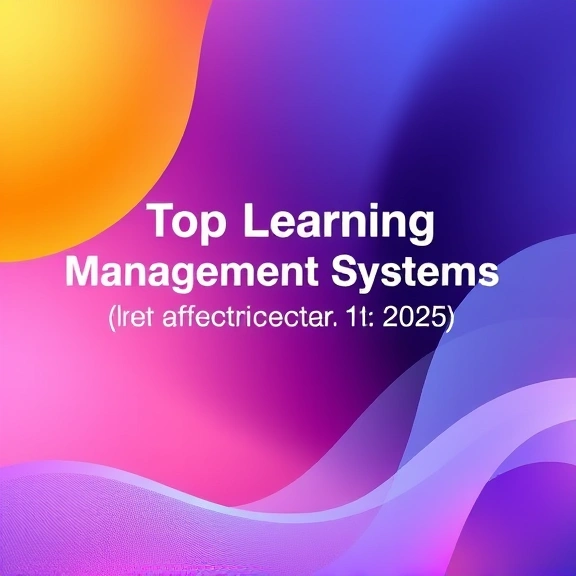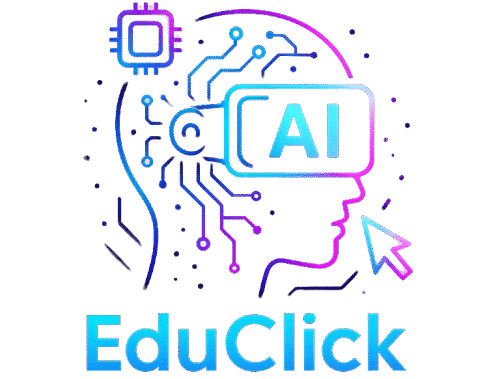Unlocking the Future: Top Learning Management Systems for Effective Digital Education in 2025
Imagine a world where learning is not confined to the four walls of a classroom, but instead, it’s an expansive universe accessible from anywhere at any time. As you sit down with your morning coffee, ready to explore new knowledge, you find yourself immersed in an environment that is intuitive, engaging, and crafted just for you. This is not a distant dream but a reality that’s shaping up for 2025. The evolution of Learning Management Systems (LMS) is taking digital education to unprecedented heights, offering opportunities and solutions that once seemed unimaginable.

Perhaps you’ve been a student overwhelmed by the rigid structures of traditional education, or maybe you’ve been an educator striving to make learning more inclusive and adaptive. The advent of advanced LMS platforms promises to mend these gaps. You might recall the frustration of navigating clunky systems that hindered rather than helped your learning process, or the joy when a particular system made learning feel like a personal adventure. These experiences resonate deeply as we look toward the future of e-learning, where every learner’s needs are prioritized.
Your quest for knowledge is personal and unique, and the right LMS can make all the difference. Imagine having the tools to tailor your educational journey, with systems that understand your pace, your style, and your goals. These systems are designed to support not just the acquisition of knowledge but the flourishing of creativity and critical thinking. As we explore the best LMS for digital education in 2025, you’ll discover how they are set to transform your learning experience, making it more engaging, efficient, and effective than ever before.
In this article, we will delve into the top learning management systems that are poised to redefine e-learning in 2025. We will explore their features, benefits, and practical applications, helping you make informed decisions for your educational pursuits. Whether you’re an educator, a student, or an institutional leader, understanding these advancements will equip you to harness the full potential of digital education.
Key Features of Leading Learning Management Systems
Adaptive Learning Technologies
Adaptive learning technologies are at the forefront of the future of e-learning. These systems use algorithms and data analytics to customize learning pathways for individual users, ensuring that you receive the most relevant and effective educational experience possible.
- Personalized content delivery based on your learning pace and preferences.
- Real-time feedback and adjustments to curriculum to optimize learning outcomes.
- Case Study: A university implemented adaptive learning technologies, resulting in a 30% increase in student performance and satisfaction.
Integration and Interoperability
As digital education expands, the ability of LMS platforms to integrate with other technologies and systems is crucial. This ensures a seamless learning experience across different platforms and devices.
- Support for various formats and third-party applications.
- Example: An LMS that integrates with collaboration tools like Slack and Zoom.
- Benefits include streamlined communication and enhanced collaborative learning.
Data Security and Privacy
With the increasing reliance on digital platforms, protecting user data has become paramount. Leading LMS platforms prioritize data security and privacy, adhering to global standards and regulations.
- Implementation of robust encryption and secure access protocols.
- Regular audits and compliance with regulations such as GDPR.
- Practical Application: Institutions have reported reduced data breaches and increased trust in their systems.
Top Learning Management Systems to Consider
Moodle: The Open-Source Champion
Moodle has long been a favorite in the e-learning community due to its flexibility and open-source nature. It offers a wide range of customization options, allowing you to tailor the platform to your specific needs.
- Extensive plugin library for customized features.
- Case Example: A small college uses Moodle to design a unique curriculum that aligns with their educational philosophy.
- Community-driven support ensures continuous improvement and innovation.
Canvas: User-Friendly and Scalable
Canvas is known for its intuitive user interface and robust feature set, making it an ideal choice for institutions looking to scale their digital education efforts.
- Easy-to-use design that reduces the learning curve for new users.
- Integrated analytics dashboards for tracking and enhancing student performance.
- Practical Use: A large university scaled their online courses with Canvas, supporting thousands of students seamlessly.
Blackboard: A Comprehensive Solution
Blackboard remains a leading LMS due to its comprehensive suite of tools that cater to various educational needs, from K-12 to higher education.
- Supports a wide range of learning formats, including virtual classrooms and mobile learning.
- Example: Blackboard’s collaboration with educational institutions to develop industry-specific content.
- Strong focus on accessibility for diverse learning communities.
🎥 Vídeo complementar sobre o tópico
Emerging Trends in LMS for 2025
Artificial Intelligence and Machine Learning
AI and machine learning are revolutionizing LMS by providing personalized learning experiences and predictive analytics.
- AI-driven tutoring systems that adapt to individual learning styles.
- Predictive analysis for identifying at-risk students and tailoring interventions.
- Case Study: Implementations have shown improved student engagement and retention rates.
Gamification and Interactive Learning
Engagement is key to effective learning, and gamification techniques are increasingly being integrated into LMS platforms.
- Use of rewards, leaderboards, and interactive challenges to motivate learners.
- Example: A corporate training program uses gamified modules to enhance employee skills.
- Benefits: Increased motivation and better retention of knowledge.
Virtual and Augmented Reality
Virtual and augmented reality technologies are providing immersive learning experiences that go beyond traditional methods.
- Applications in virtual labs, field trips, and complex simulations.
- Example: A medical school uses VR to allow students to practice surgeries in a risk-free environment.
- These technologies support experiential learning, enhancing comprehension.
Challenges and Solutions in Digital Education
Accessibility and Inclusion
Ensuring that digital education is accessible to all learners, regardless of their backgrounds or abilities, is a continuing challenge.
- Adoption of universal design principles to make content accessible.
- Example: Implementation of captioning for video content and screen reader compatibility.
- Outcome: Broader reach and positive impacts on diverse student populations.
Cost and Resource Allocation
Budget constraints and resource allocation present significant hurdles for many educational institutions.
- Strategies for cost-effective adoption and integration of LMS.
- Grants and funding opportunities for technological advancement.
- Case Example: A district utilizes government grants to fund LMS implementations.
Training and Support
Providing adequate training and support for educators and learners is crucial for the success of digital education initiatives.
- Development of comprehensive training programs for all stakeholders.
- Continuous support through helpdesks and online resources.
- Practical Application: Institutions have reported increased competency and confidence in using LMS.
Preparing for the Future of E-Learning
Strategic Planning and Vision
Looking ahead, strategic planning and a clear vision are essential for leveraging LMS for future educational needs.
- Development of long-term goals that align with technological advances.
- Involvement of all stakeholders in planning processes.
- Example: Schools design five-year plans to integrate new LMS technologies.
Collaboration and Partnerships
Building collaborations and partnerships with industry leaders and technology providers can enhance the quality and reach of digital education.
- Joint ventures to develop innovative solutions and content.
- Case Study: A partnership between an LMS provider and a tech company results in cutting-edge educational tools.
- Outcome: Enhanced resources and shared expertise.
Continuous Evaluation and Improvement
The dynamic nature of technology necessitates continuous evaluation and improvement of LMS platforms.
- Regular feedback loops and metrics for assessing effectiveness.
- Incorporation of user feedback into system upgrades.
- Benefits: Sustained relevance and user satisfaction.

What is a Learning Management System (LMS)?
An LMS is a software application that facilitates the delivery, management, and monitoring of educational courses and training programs. It provides tools for creating, delivering, and tracking learning content, assessments, and learner progress. Whether you’re an educator, learner, or administrator, an LMS can streamline educational processes and enhance learning outcomes.
Why are LMS platforms crucial for digital education in 2025?
In 2025, LMS platforms are pivotal due to their ability to offer flexible, scalable, and customizable learning experiences. They leverage advanced technologies like AI and machine learning to provide personalized education. These systems enable institutions to reach a wider audience, enhance learning engagement, and improve educational outcomes, making them indispensable for modern education.
How do adaptive learning technologies in LMS benefit students?
Adaptive learning technologies analyze student interactions and performance to tailor content, pace, and difficulty according to individual needs. This personalized approach helps students stay engaged, reduces learning gaps, and enhances knowledge retention. For instance, a student struggling with a concept may receive additional resources and customized exercises to aid comprehension.
What are the security challenges associated with LMS systems?
Security challenges in LMS systems include data breaches, unauthorized access, and data privacy concerns. To mitigate these risks, LMS platforms employ measures such as encryption, secure login protocols, and regular security audits. Institutions adopting LMS must prioritize compliance with data protection regulations, ensuring the safety and confidentiality of user information.
Can LMS platforms support lifelong learning?
Yes, LMS platforms are well-suited for lifelong learning by offering diverse and up-to-date content across various subjects and skill levels. Their flexibility allows individuals to learn at their own pace, revisit past lessons, and explore new topics as needed. This adaptability supports continuous personal and professional development throughout one’s life.
How can institutions optimize the use of LMS for digital education?
Institutions can optimize LMS use by providing thorough training for educators and learners, integrating the LMS with existing technologies, and continuously evaluating its effectiveness. By fostering a culture of feedback and innovation, institutions can adapt their LMS to meet changing educational needs and enhance the learning experience for all users.
Are there any cost-effective LMS options available?
Cost-effective LMS options include open-source platforms like Moodle, which offer extensive customization without licensing fees. Many LMS providers also offer tiered pricing models, allowing institutions to choose a plan that fits their budget and needs. Additionally, some programs offer discounts for educational institutions, making advanced LMS solutions more accessible.
How do LMS platforms handle the assessment and evaluation of students?
LMS platforms offer a variety of tools for assessing and evaluating students, including quizzes, assignments, and peer reviews. These systems provide analytics and reporting features that track student progress and performance. Educators can use this data to identify strengths and areas needing improvement, allowing for targeted interventions and support.
Conclusion: Embracing the Future of Digital Education
As we stand on the brink of 2025, the evolution of Learning Management Systems promises to reshape the landscape of education. The systems we’ve explored in this article are only the beginning of a transformative journey that will empower learners and educators alike. By understanding and embracing these advancements, you position yourself at the forefront of a digital education revolution that values personalization, adaptability, and inclusivity.
Your role as a learner or educator is more crucial than ever in this dynamic environment. Embrace the technologies that resonate with your needs and aspirations, and leverage them to create a richer, more diverse learning experience. As we move forward, the importance of continuous learning and adaptation cannot be overstated. The future of e-learning is not just about technology; it’s about fostering a lifelong love of learning.
Whether you are an institution looking to implement new LMS strategies or an individual seeking to enrich your educational journey, now is the time to act. Explore the possibilities, take advantage of opportunities, and be part of a movement that is breaking down barriers and redefining what it means to learn in the digital age. By doing so, you will not only enhance your own educational experience but contribute to a broader transformation in how we acquire and apply knowledge.
As you reflect on the potential of these systems, consider how you can integrate them into your learning or teaching strategies. The future is bright for digital education, and with the right tools and mindset, you can be a catalyst for change. Let this be your call to action: dive into the world of LMS, embrace the innovations, and lead the charge in shaping the future of education.
Key Takeaways
- The future of e-learning is characterized by advanced LMS technologies that offer personalized, scalable, and flexible education solutions.
- Adaptive learning technologies, AI, and data-driven analytics are central to enhancing learning experiences and outcomes.
- Choosing the right LMS involves considering factors such as integration capabilities, security measures, and cost-effectiveness.
- Challenges such as accessibility, cost, and training require strategic planning and continuous improvement efforts.
- Embracing these technologies ensures that you remain at the forefront of educational innovation, ready to tackle the challenges and opportunities of the digital age.




